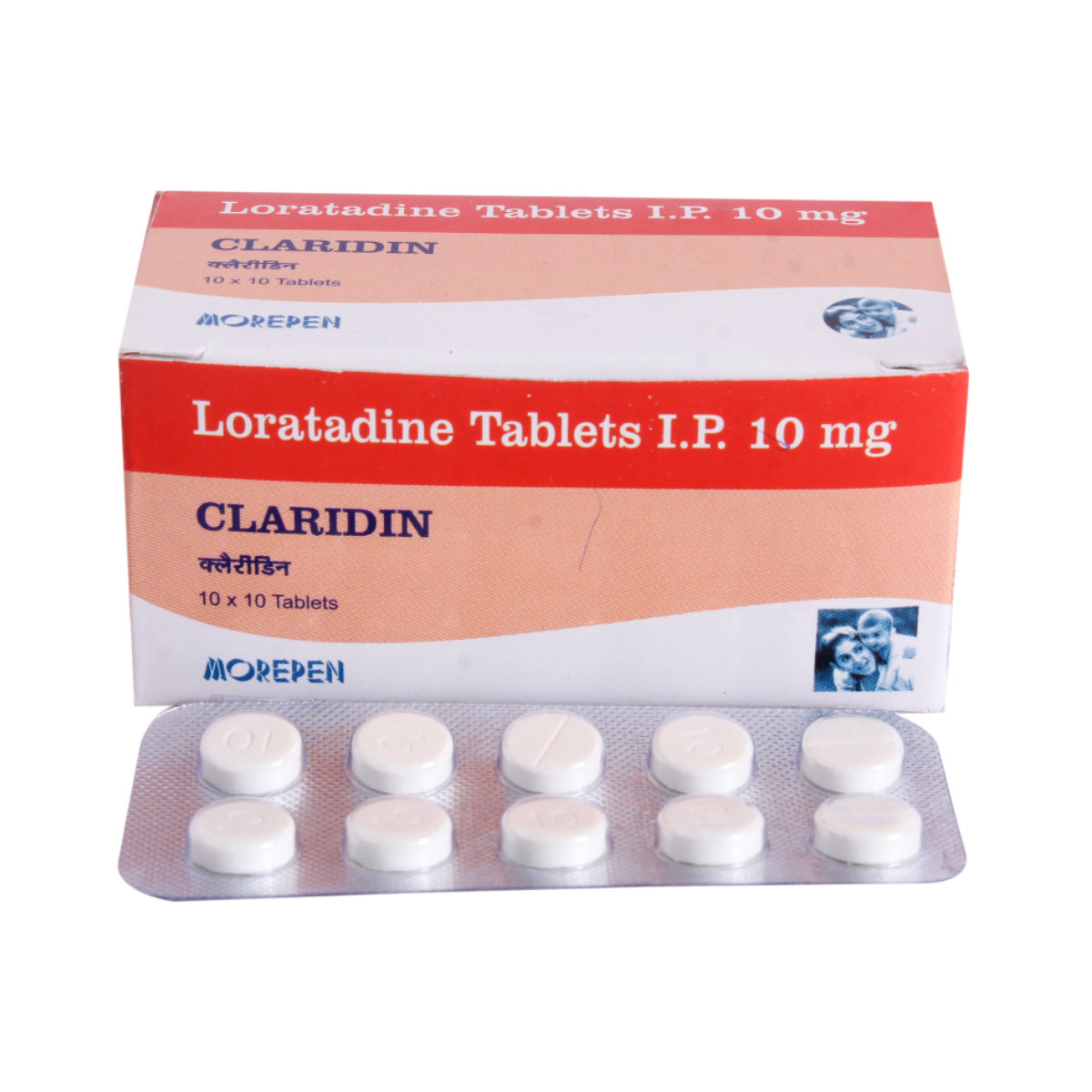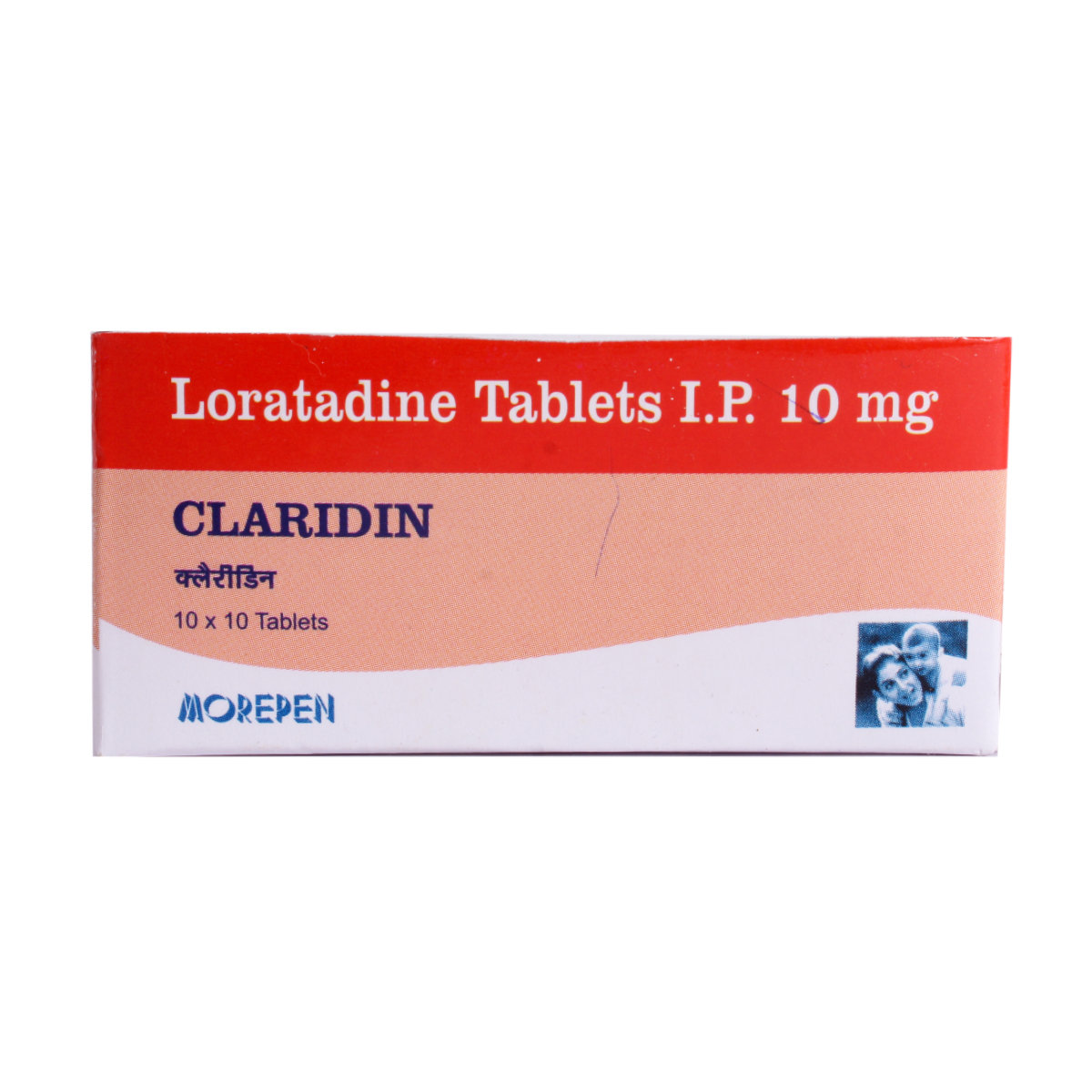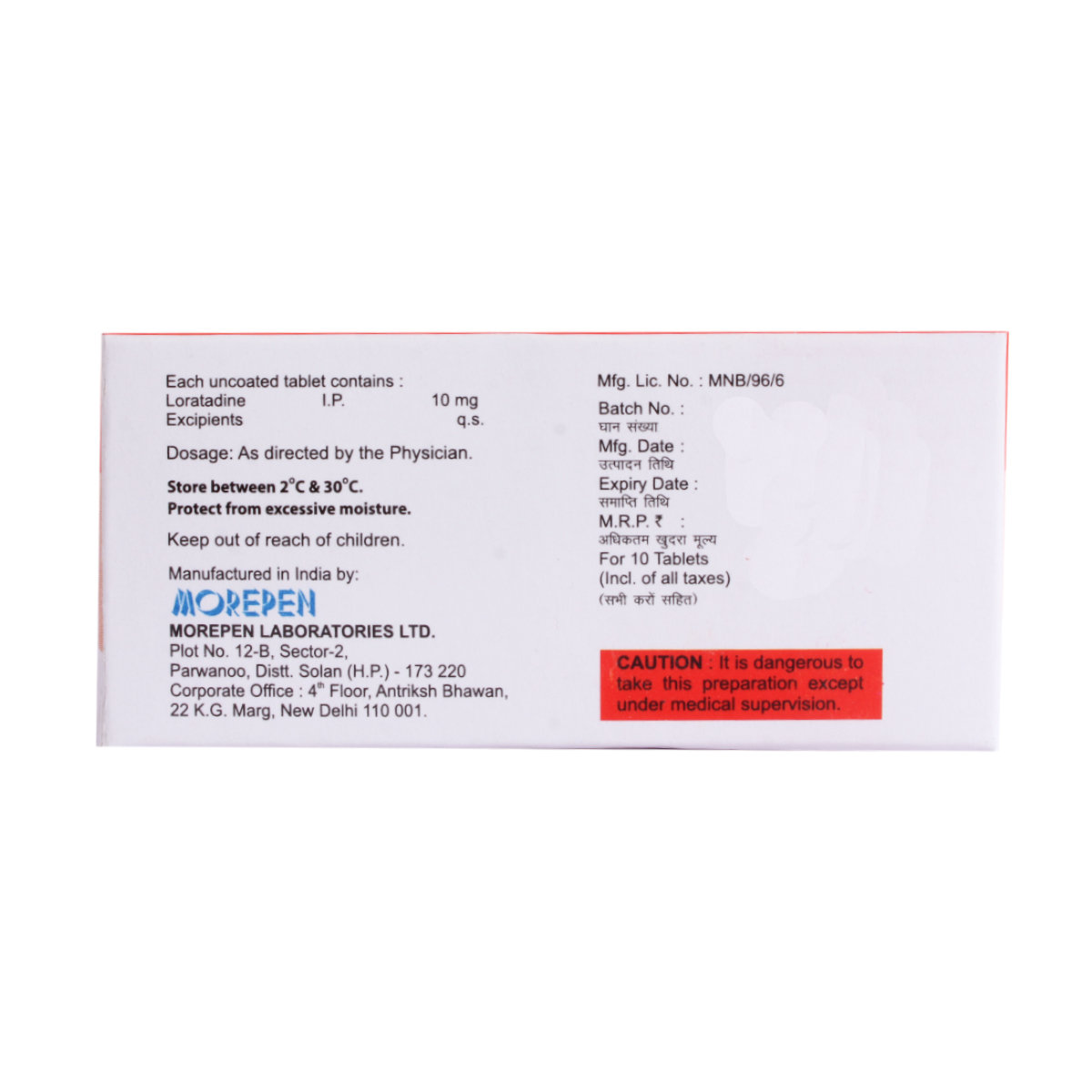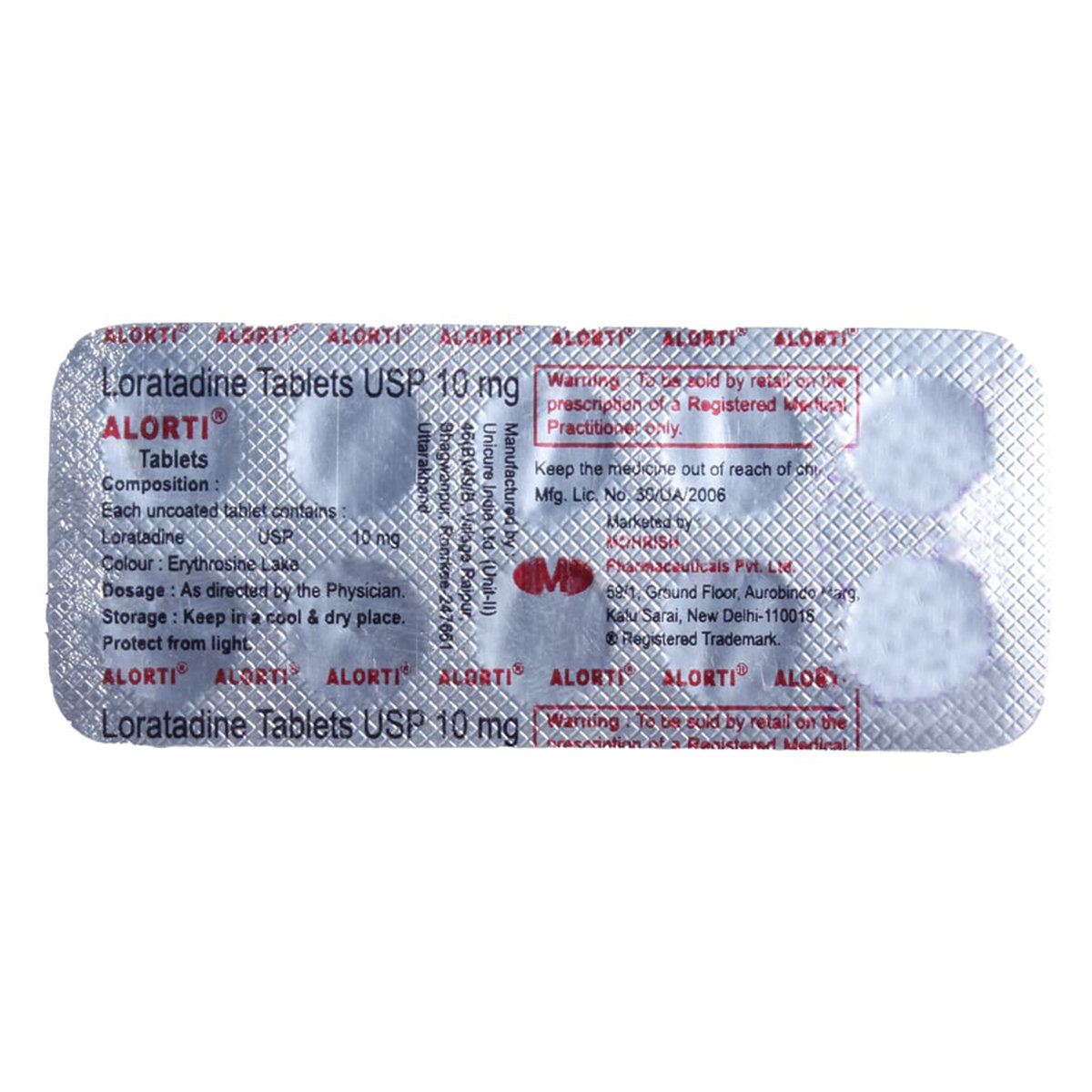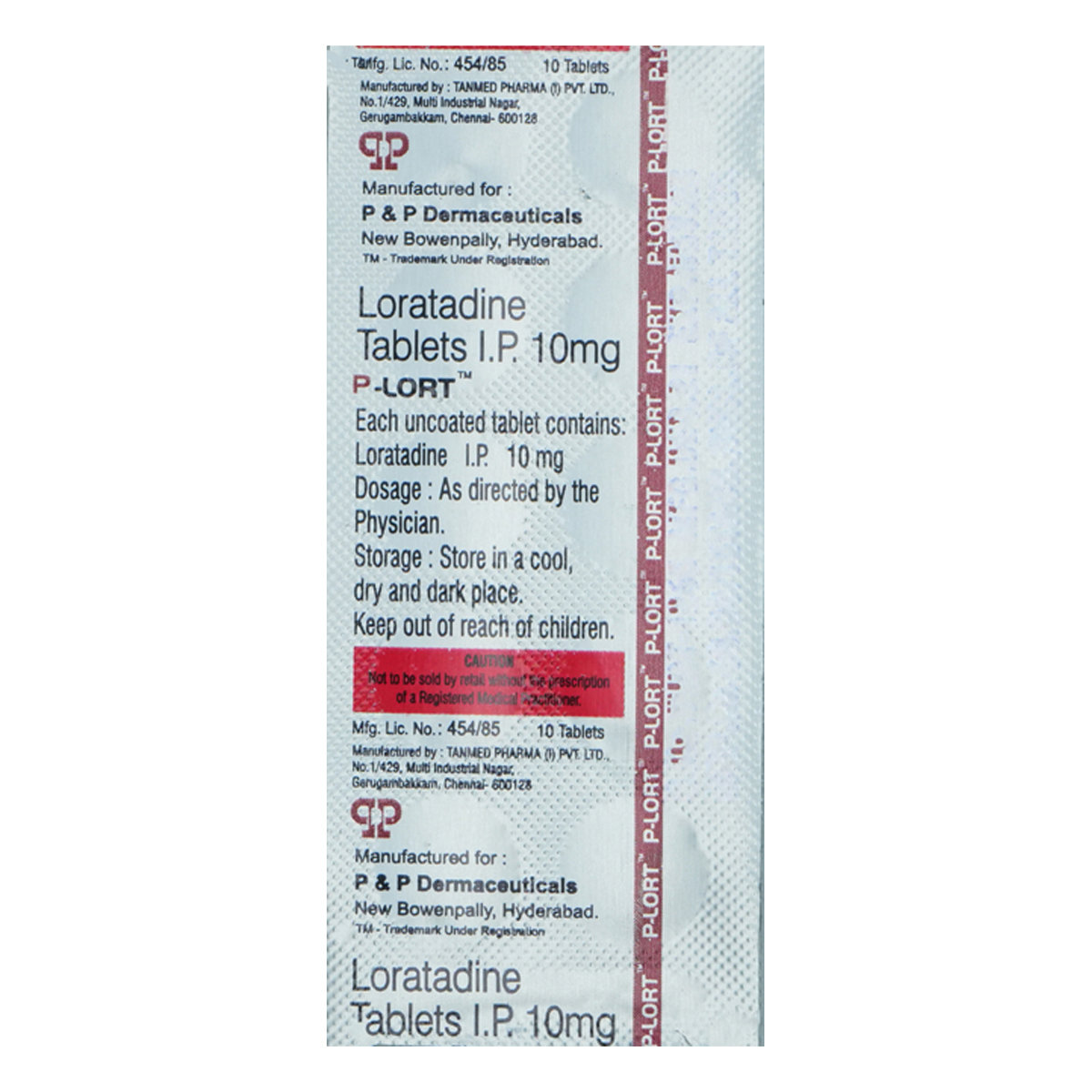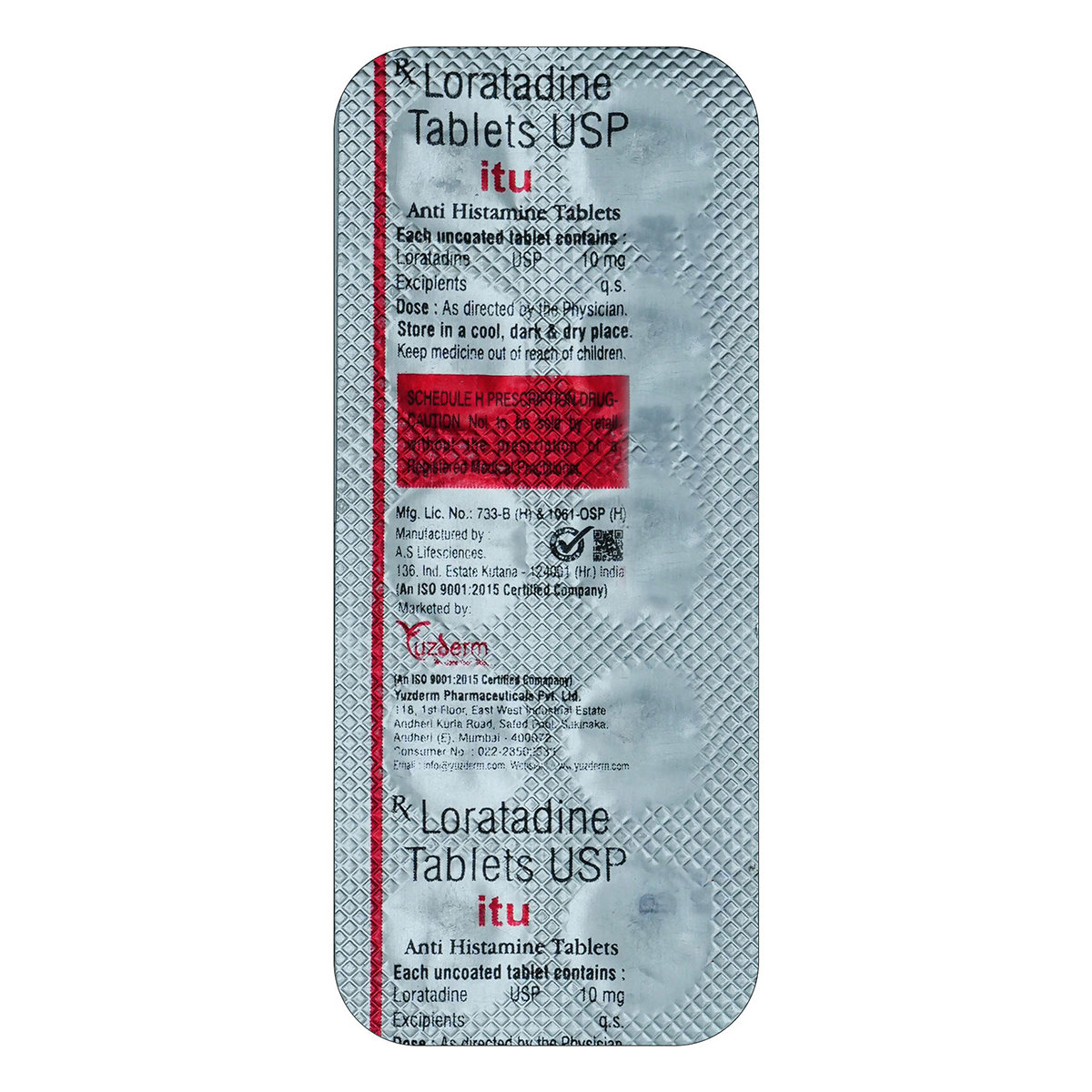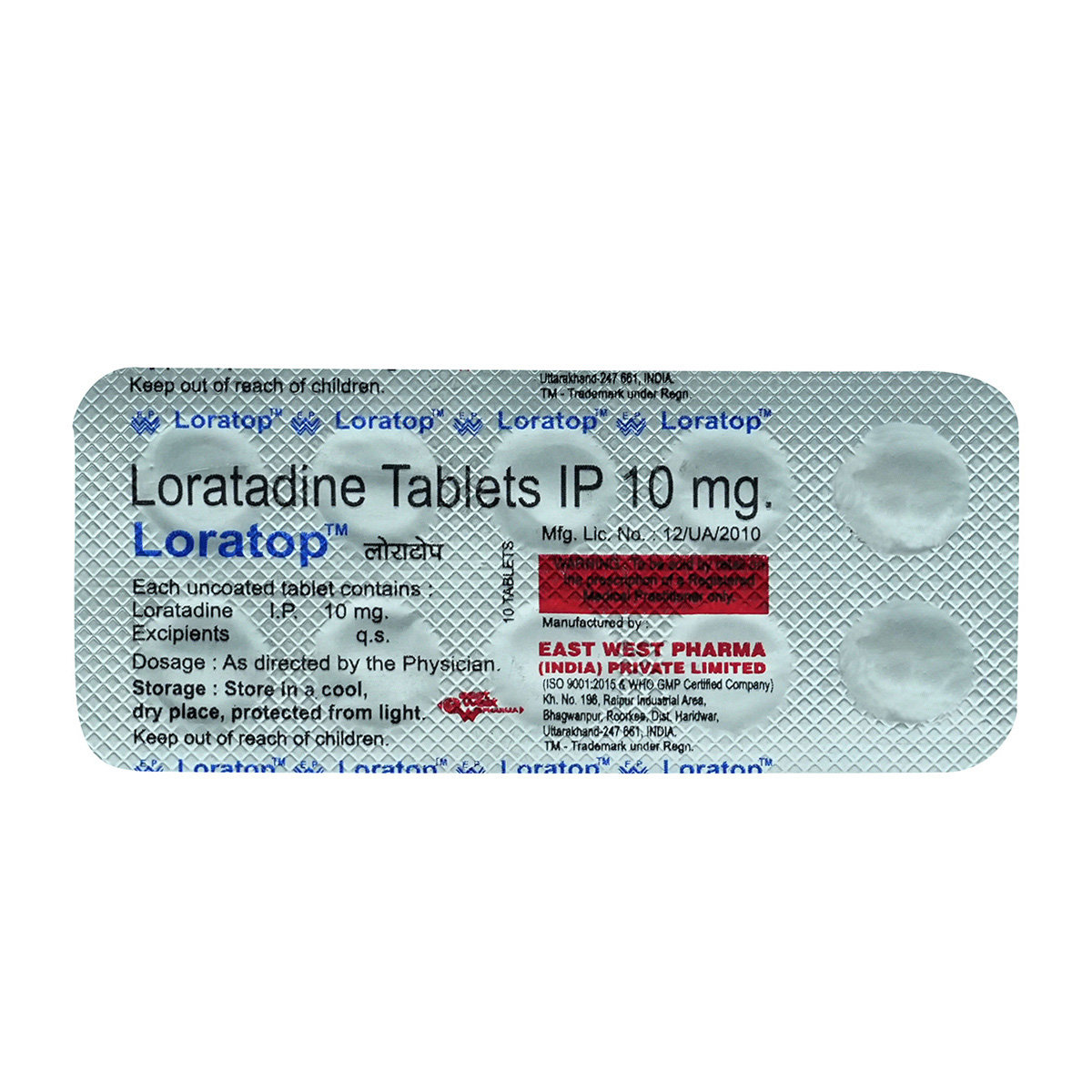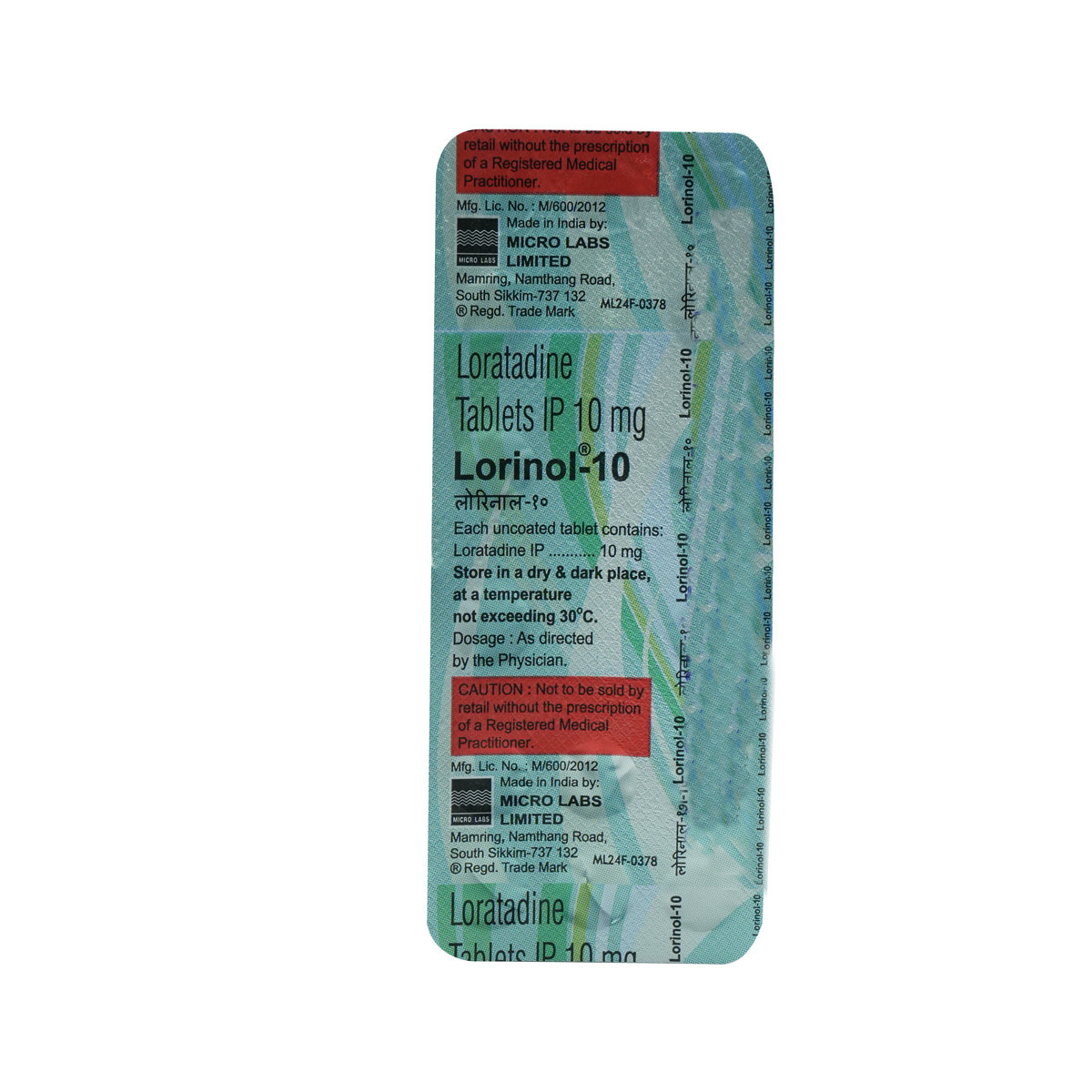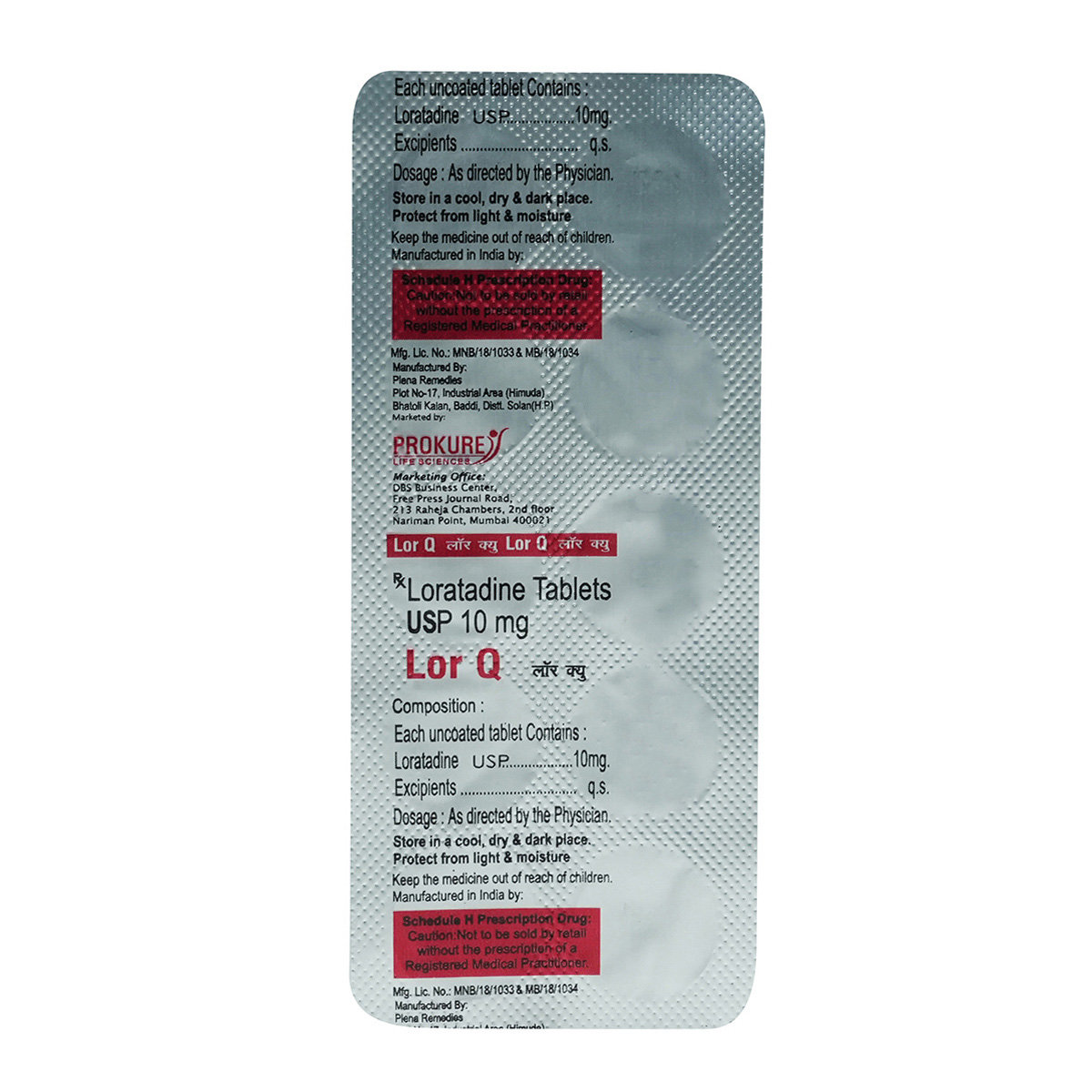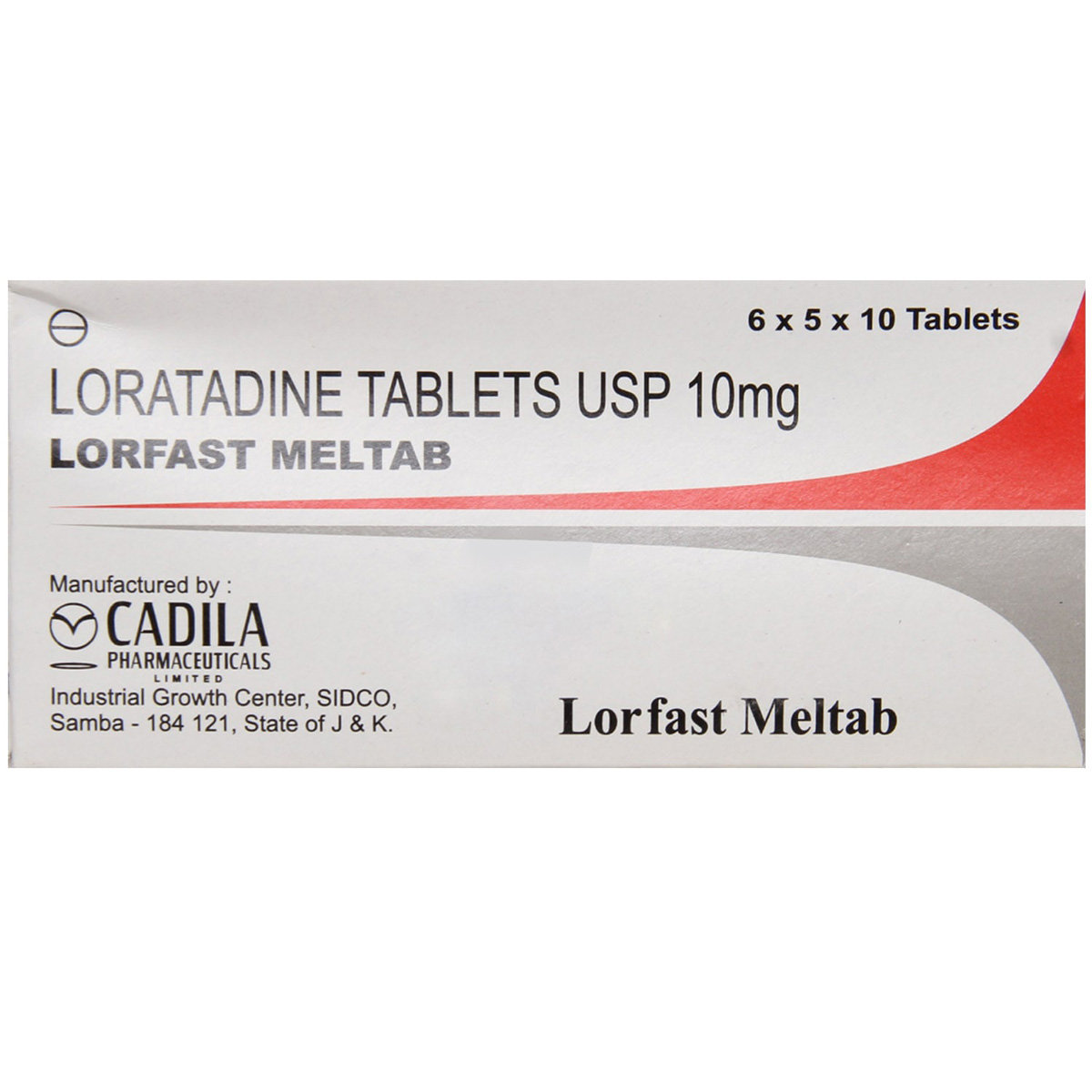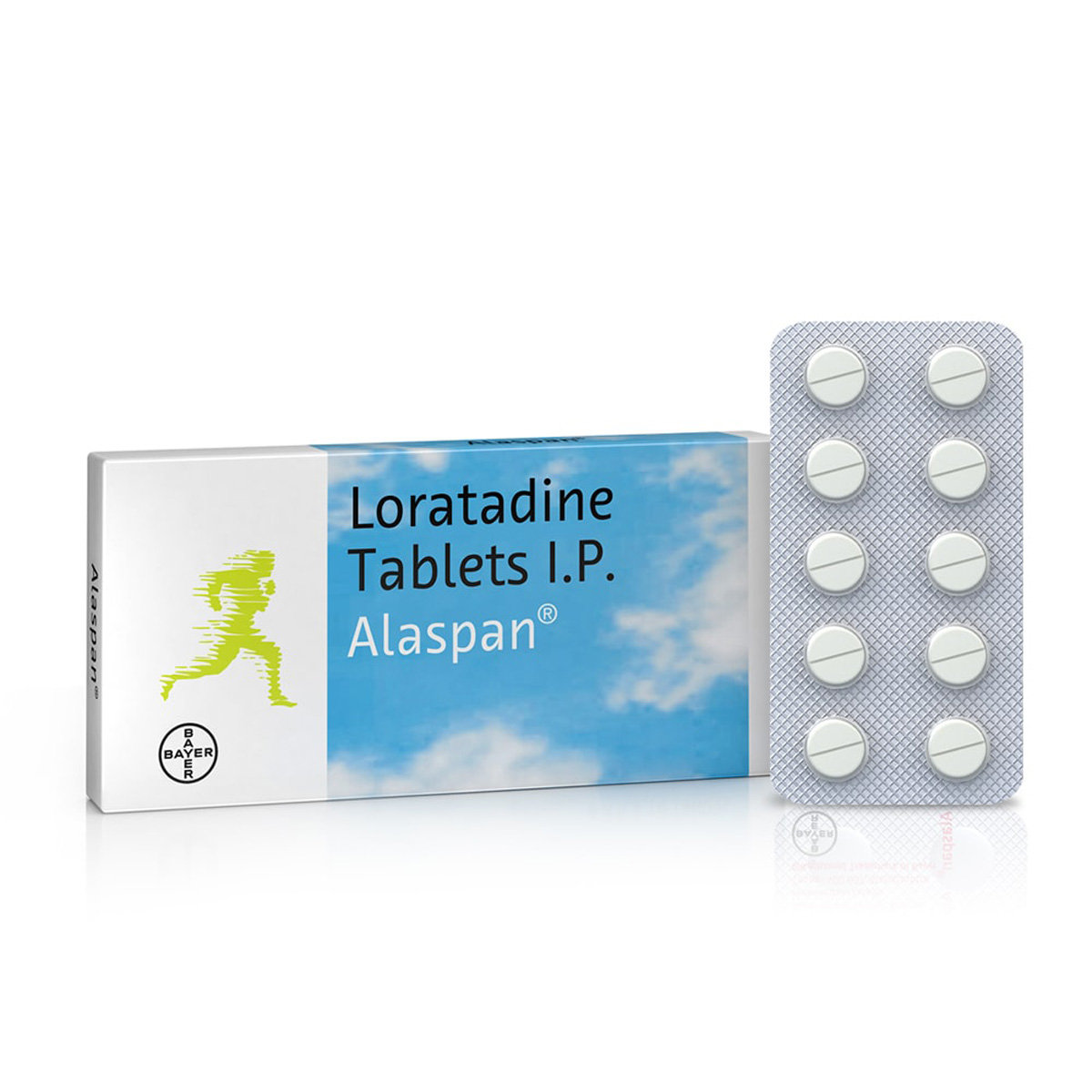Claridin 10 mg Tablet 10's
MRP ₹45
(Inclusive of all Taxes)
₹6.8 Cashback (15%)
Provide Delivery Location
Online payment accepted
 Prescription drug
Prescription drugWhats That
Composition :
Manufacturer/Marketer :
Consume Type :
Expires on or after :
Return Policy :
About Claridin 10 mg Tablet
Claridin 10 mg Tablet belongs to the class of antihistamine medication primarily used to relieve the symptoms of allergies such as hay fever, conjunctivitis (red, itchy eyes), eczema, hives (urticaria), reactions to insect bites and stings, and some food allergies. An allergy is an immune system response to foreign elements typically not harmful to your body. These foreign elements are known as 'allergens.' Allergic condition varies from person to person.
Claridin 10 mg Tablet contains loratadine, a non-drowsy antihistamine. Claridin 10 mg Tablet is responsible for reducing the effects of the natural chemical 'histamine' present in the body. This chemical is responsible for producing symptoms, including watery eyes, runny nose, and other allergic symptoms.
Use Claridin 10 mg Tablet as prescribed by the doctor. Claridin 10 mg Tablet , like all medications, can have side effects. However, not everyone experiences them. The most prevalent adverse effect is drowsiness or sleepiness. Headaches, fatigue, and nervousness may occur in youngsters. However, these side effects may not last long and go on for some time.
Do not use Claridin 10 mg Tablet without a doctor's advice if you have a skin reaction or irritation to any medicine. Consult your doctor before using Claridin 10 mg Tablet if you are pregnant or breastfeeding. Do not use Claridin 10 mg Tablet in more than prescribed doses or longer duration as it may cause adverse effects. Before taking Claridin 10 mg Tablet , inform your doctor about your medical history and other medications you are currently taking to rule out any potential adverse effects or interactions. Avoiding alcohol is recommended to rule out any possibility of side effects like dizziness. Claridin 10 mg Tablet is not recommended in children below two years of age.
Uses of Claridin 10 mg Tablet
Directions for Use
Key Benefits
Claridin 10 mg Tablet is a non-sedating antihistamine. It is less prone to cause sleepiness than other antihistamines. By suppressing histamine action, Claridin 10 mg Tablet provides immediate relief from allergic reactions and symptoms. Histamine is a chemical that triggers immunological responses and inflammation in the body. Claridin 10 mg Tablet is commonly used to treat hay fever (pollen or dust allergy), conjunctivitis (red, itchy eyes), eczema (dermatitis), hives (red, raised patches or spots), insect bite and sting reactions, and several food allergies.
Storage
- Hydrate your body: Drink enough water to prevent dehydration and headaches.
- Calm Your Mind: Deep breathing and meditation can help you relax and relieve stress.
- Rest and Recharge: Sleep for 7-8 hours to reduce headache triggers.
- Take rest: lie down in a quiet, dark environment.
- Cold or warm compresses can help reduce tension.
- Stay Upright: Maintain good posture to keep symptoms from getting worse.
- To treat headaches naturally, try acupuncture or massage therapy.
- Over-the-counter pain relievers include acetaminophen and ibuprofen.
- Prescription Assistance: Speak with your doctor about more substantial drug alternatives.
- Severe Headaches: Seek emergency medical assistance for sudden, severe headaches.
- Frequent Headaches: If you get reoccurring headaches, consult your doctor.
- Headaches with Symptoms: Seek medical attention if your headaches include fever, disorientation, or weakness.
- Avoid driving or operating machinery or activities that require high focus until you know how the medication affects you.
- Maintain a fixed sleeping schedule, create a relaxing bedtime routine and ensure your sleeping space is comfortable to maximize your sleep quality.
- Limit alcohol and caffeine as these may worsen drowsiness and disturb sleep patterns.
- Drink plenty of water as it helps with alertness and keeps you hydrated and for overall well-being.
- Moderate physical activity can improve energy levels, but avoid intense workouts right before bedtime.
- Tell your doctor immediately if you experience symptoms of Nervousness, such as anxiety, jitteriness, or an increased heart rate, after taking medication or adjusting your medication regimen.
- Your doctor may adjust your medication regimen to alleviate symptoms of Nervousness. This can include switching to a different medication, reducing the dosage, or temporarily stopping the medication. Your doctor may also recommend alternative techniques like relaxation, mindfulness meditation, or journaling. These techniques can help reduce anxiety and Nervousness.
- Practice stress-reducing techniques, such as deep breathing exercises, yoga, or journaling, to help manage Nervousness.
- Engage in regular physical activity, such as walking or jogging, to help reduce anxiety and improve mood.
- Your doctor may advise considering cognitive-behavioural therapy (CBT) or other forms of talk therapy to address underlying anxiety or Nervousness.
- You should maintain regular follow-up appointments with your doctor to monitor nervousness symptoms, adjust treatment plans as needed, and discuss any concerns or questions.
- Rest well; get enough sleep.
- Eat a balanced diet and drink enough water.
- Manage stress with yoga and meditation.
- Limit alcohol and caffeine.
- Physical activities like walking or jogging might help boost energy and make you feel less tired.
- Inform your doctor about dry mouth symptoms. They may adjust your medication regimen or prescribe additional medications to manage symptoms.
- Drink plenty of water throughout the day to help keep your mouth moist and alleviate dry mouth symptoms.
- Chew sugar-free gum or candies to increase saliva production and keep your mouth moisturized.
- Use saliva substitutes, such as mouthwashes or sprays, only if your doctor advises them to help moisturize your mouth and alleviate dry mouth symptoms.
- Avoid consuming smoking, alcohol, spicy or acidic foods, and other irritants that may aggravate dry mouth symptoms.
- Schedule regular dental check-ups to keep track of your oral health and handle any dry mouth issues as they arise.
Drug Warnings
Before your doctor prescribes Claridin 10 mg Tablet , tell them if you are sensitive to it or any other component present in this, as it may cause serious allergic reactions in the body. Never try to self-treat yourself with this drug without talking to your doctor, as it may cause serious side effects. If you are a patient with kidney disease, the liver disease, then tell about this to your doctor before they prescribe it to you. Elderly persons may be more sensitive to the serious reactions of this drug, especially light-headedness or confusion. Usually, the Claridin 10 mg Tablet does not cause drowsiness as this medicine does not go inside the brain. However, a person taking it is still not allowed to drive or do any work that needs clear attention.
Drug-Drug Interactions
Drug-Drug Interactions
Login/Sign Up
Coadministration of Conivaptan with Claridin 10 mg Tablet may increase the blood levels and effects of Claridin 10 mg Tablet.
How to manage the interaction:
Although there is a possible interaction between Claridin 10 mg Tablet and Conivaptan, you can take these medicines together if prescribed by a doctor. Do not stop using any medications without a doctor's advice.
Coadministration of Claridin 10 mg Tablet with Diltiazem can lead to or increase the risk of irregular heart rhythms.
How to manage the interaction:
Taking Claridin 10 mg Tablet with Diltiazem together can possibly result in an interaction, it can be taken if your doctor has advised it. However, if you experience sudden dizziness, lightheadedness, fainting, shortness of breath, or rapid heartbeat, contact your doctor immediately. Do not discontinue any medications without first consulting your doctor.
Drug-Food Interactions
Drug-Food Interactions
Login/Sign Up
Grapefruit Juice
How to manage the interaction:
Coadministration of Claridin 10 mg Tablet with grapefruit juice may increase the plasma concentrations of Claridin 10 mg Tablet. Avoid drinking grapefruit juice while being treated with Claridin 10 mg Tablet.
Diet & Lifestyle Advise
- Try to include peppers, berries, parsley, and onion in your diet, as these foods have quercetin, a natural chemical that reduces histamine effects.
- Include Kiwi and other vitamin C-rich food in your daily diet as it may reduce the histamine effects.
- An enzyme known as 'bromelain' is present in pineapple that helps reduce allergic response in the body, so eat it too for good health.
- Honey is a complete food that helps to deal with all types of allergies. Take small doses of it regularly.
- Avoid going in grassy open spaces in the evening, night, and morning as the pollen count is high during these times, and it may trier allergic symptoms.
- Avoid every place contaminated with fur and dander as it may worsen the allergic response.
Side Effects of Claridin 10 mg Tablet
- Drowsiness
- Sleepiness
- Headaches
- Fatigue
- Nervousness
Habit Forming
Therapeutic Class
All Substitutes & Brand Comparisons
RX
Out of StockCipadin 10mg Tablet
₹24.5
(₹2.21 per unit)
45% CHEAPERRX
Lora 10 Tablet 10's
Yaher Pharma
₹46.5
(₹4.19 per unit)
3% COSTLIERRX
Talor Tablet 10's
Talent India Pvt Ltd
₹59
(₹5.31 per unit)
31% COSTLIER
Drug-Diseases Interactions
Drug-Diseases Interactions
Login/Sign Up
Both the parent drug and its active metabolite, which is largely produced by the liver, are eliminated in the urine. Due to medication and metabolite accumulation, patients with renal and/or hepatic dysfunction may be more susceptible to severe effects from Claridin 10 mg Tablet.
How to manage the interaction:
Claridin 10 mg Tablet use is generally avoided in patients with a history of kidney or liver illness as it can worsen the condition due to Claridin 10 mg Tablet accumulation in the body. It can be taken if advised by your doctor. However, if you notice any unusual bleeding or bruising, other signs of bleeding, dizziness, lightheadedness, red or black tarry stools, coughing up or vomiting blood, severe headache, and weakness, you should contact a doctor immediately. Do not stop using any medications without talking to a doctor.
FAQs
Drug-Drug Interactions Checker List
- MIDODRINE
- AMIODARONE
- KETOCONAZOLE
- ERYTHROMYCIN
- RITONAVIR
- CIMETIDINE
Disease/Condition Glossary
Allergy: An allergy is an immune system response to foreign elements typically not harmful to your body. These foreign elements are known as ‘allergens.’ Allergic condition varies from person to person. Some might be allergic to certain foods and seasonal allergies like hay fever. At the same time, others might be allergic to pollen or pet dander. Claridin 10 mg Tablet is a non-drowsy antihistamine which makes less likely to make you feel sleepy compared to other antihistamines or antiallergics.
Hay fever: Hay fever/allergic rhinitis is an allergic reaction to pollen, typically when it comes into contact with the mouth, nose, eyes and throat. Hay fever symptoms include sneezing and coughing, a runny or blocked nose, itchy, red or watery eyes, itchy throat, mouth, nose and ears, loss of smell, pain around the temples and forehead, headache, earache and feeling tired.
Eczema: Eczema is a condition in which skin patches become inflamed, itchy, cracked and rough. Some eczema types can also lead to blisters (a small bubble on the skin filled with serum) and are caused by friction, burning, or other damage.
Conjunctivitis: Conjunctivitis is an eye condition caused by infection or allergies. It is also known as red or pink eye. Redness, itching, and tears of the eyes are symptoms. It can also cause discharge or crusting around the eyes.

Have a query?
Alcohol
Safe if prescribed
You are recommended to avoid consumption of alcohol with Claridin 10 mg Tablet as it may increase the risk of side effects such as drowsiness, dizziness, or difficulty in concentrating.
Pregnancy
Consult your doctor
Claridin 10 mg Tablet is generally safe to take in pregnancy. If you have concerns, discuss them with the doctor before taking Claridin 10 mg Tablet .
Breast Feeding
Consult your doctor
Please consult the doctor. Claridin 10 mg Tablet should be used in breastfeeding mothers only if the benefits outweigh the risks.
Driving
Safe if prescribed
Although Claridin 10 mg Tablet did not cause drowsiness, some persons are susceptible to it. However, avoiding driving or any task needing mental alert is advised.
Liver
Consult your doctor
Claridin 10 mg Tablet to be taken with caution, especially if you have a history of Liver diseases/conditions. The dose may have to be adjusted by your doctor.
Kidney
Consult your doctor
Claridin 10 mg Tablet to be taken with caution, especially if you have a history of Kidney diseases/conditions. The dose may have to be adjusted by your doctor.
Children
Safe if prescribed
Claridin 10 mg Tablet is not recommended for children below two years.


